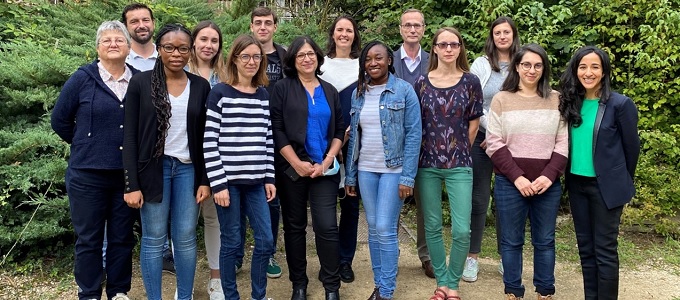Research
The team Epidemiology of childhood and adolescent cancer (EPICEA) bases its research work on its unique infrastructures, the National Registry of Childhood Cancers (RNCE) and the Childhood Cancer Observation Platform (HOPE-EPI/CCOP Investment for the future).The team's research work is devoted to the risk factors for childhood cancer, a field that the team has been developing for twenty years, and to the evaluation of the health of people who have had cancer in the childhood, a field initiated 10 years ago with the construction of the CCOP.
Studies on risk factors
The search for risk factors for childhood cancer is complex. At the time of the diagnosis is made, the determinants that could have intervened very early in fetal life or early childhood to induce cancer are difficult to find retroactively. While we are gradually improving our understanding of the genetic conditions and genetic variants that influence cancer risk, it is much more difficult to retrospectively trace risk factors related to lifestyle, environment or diet, insofar as there is no longer known and objectifiable trace at the time of diagnosis. The rarity of cancers and their diversity add to the complexity of this research.
For this reason, the team uses several complementary approaches, with studies based on interviews with mothers and blood or saliva samples (ESCALE, ESTELLE, MOBI-KIDS studies), studies based solely on knowledge of the municipalities of residence (ecological studies) or on the geolocation of the addresses of patients and controls (GEOCAP, GEOCAP-BIRTH).
The team also works in international consortiums (CLIC, RADONORM) and contributes to the multidisciplinary consortium PEDIAC.
Studies on long term follow-up
Several tens of thousands of people had cancer during their childhood. Cancer and its treatment may have left sequelae leading to disabilities and alterations in the quality of life. Many treatments are likely to induce long-term adverse effects that should be identified and screened for.
To improve knowledge of these effects and contribute to the systematic monitoring of this population, the team set up the COHOPER cohort, which carries out passive epidemiological monitoring of patients using medico-administrative databases, and with the help of questionnaires for patients who agree to respond to the solicitation.

Contacts and location
Hôpital Paul Brousse – Bâtiment Leriche
16 avenue Paul Vaillant Couturier
F-94807 Villejuif Cedex
+33 1 45 59 50 37
rnce@inserm.fr